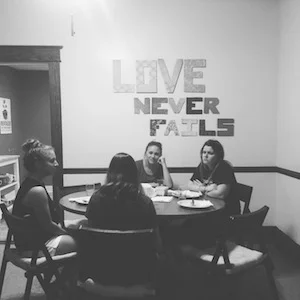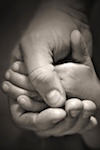 Fidelity is not a cheap word, and it is not an easy word. Its hunger to consume every morsel of life grudgingly offered it — to yield abundance in return — is insatiable. There is no doubt that fidelity includes our sexual habits and behavior, but at the same time it becomes lost if we confine it only to sexual behavior. Fidelity invites us to better understand our relationship to everyone and everything, to enjoy the blessings of rootedness instead of enduring disorientation, and ultimately allows us a better perch for seeing and engaging reality.
Fidelity is not a cheap word, and it is not an easy word. Its hunger to consume every morsel of life grudgingly offered it — to yield abundance in return — is insatiable. There is no doubt that fidelity includes our sexual habits and behavior, but at the same time it becomes lost if we confine it only to sexual behavior. Fidelity invites us to better understand our relationship to everyone and everything, to enjoy the blessings of rootedness instead of enduring disorientation, and ultimately allows us a better perch for seeing and engaging reality.
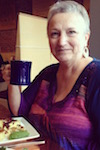 One cold and sleepless night I was suddenly overtaken by a thought that gave me such a panic that I immediately got up, wrapped myself in a quilt, and went to the kitchen to make myself a cup of tea. What if this was it? What if my mother never came back to us? What if all the stories I had heard my entire life went with her?
One cold and sleepless night I was suddenly overtaken by a thought that gave me such a panic that I immediately got up, wrapped myself in a quilt, and went to the kitchen to make myself a cup of tea. What if this was it? What if my mother never came back to us? What if all the stories I had heard my entire life went with her?
 I know that I can never conquer the yoga mountain. I can never do enough to have ever arrived. I can’t fix all the problems and have an incredible, pain-free life. And at the end of my days, no one will tally all the items I crossed off of my to-do list and say, Look at all she accomplished. Because none of that is truly important.
I know that I can never conquer the yoga mountain. I can never do enough to have ever arrived. I can’t fix all the problems and have an incredible, pain-free life. And at the end of my days, no one will tally all the items I crossed off of my to-do list and say, Look at all she accomplished. Because none of that is truly important.
 For two women who had plenty to be angry about, nothing was more cathartic than jumping up and down over a ninety-yard punt return. For a woman filled with rage over the slow disintegration of her husband, screaming at the ref for missing another obvious face mask was therapeutic. There had to be justice and fair play somewhere. Couldn’t it at least be found on the gridiron if nowhere else in our lives?
For two women who had plenty to be angry about, nothing was more cathartic than jumping up and down over a ninety-yard punt return. For a woman filled with rage over the slow disintegration of her husband, screaming at the ref for missing another obvious face mask was therapeutic. There had to be justice and fair play somewhere. Couldn’t it at least be found on the gridiron if nowhere else in our lives?
 Sometimes it seems that I woke up and found myself here all of a sudden, living this middle-aged version of myself. I catch sight of this body, this secret garden, in the mirror, and I am surprised. It is wild and untended but alive, so very alive. This is the key, unearthed. The decision to love this one body I’ve been given, the decision to care for it well.
Sometimes it seems that I woke up and found myself here all of a sudden, living this middle-aged version of myself. I catch sight of this body, this secret garden, in the mirror, and I am surprised. It is wild and untended but alive, so very alive. This is the key, unearthed. The decision to love this one body I’ve been given, the decision to care for it well.
 My mother was doubtful, my sister surprised, my friend Abigail wistful. “You’re so brave,” she said. I’m fairly certain they all expected me to be nervous about spending three days in the city alone. But I could hardly keep the glee out of my voice.
My mother was doubtful, my sister surprised, my friend Abigail wistful. “You’re so brave,” she said. I’m fairly certain they all expected me to be nervous about spending three days in the city alone. But I could hardly keep the glee out of my voice.
 Where do we carve out the mystery of not knowing but believing? We forget that our spiritual journey depends upon truths we don’t fully understand, places we have not yet traveled.
Where do we carve out the mystery of not knowing but believing? We forget that our spiritual journey depends upon truths we don’t fully understand, places we have not yet traveled.
 As I settled in across from the stranger who’d welcomed me, we started exchanging pleasantries and cursory details about our lives. I was an editor for a non-profit, he a jazz pianist whose influence I only learned of recently. And then he asked how my day was.
As I settled in across from the stranger who’d welcomed me, we started exchanging pleasantries and cursory details about our lives. I was an editor for a non-profit, he a jazz pianist whose influence I only learned of recently. And then he asked how my day was.
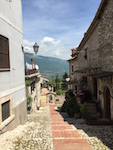 Veroli is just a name on a piece of paper in my mother’s handwriting — part of my grandmother’s history that my mother had written down before my grandmother passed away. Out of pages of stories, there are only a few lines mentioning Veroli.
Veroli is just a name on a piece of paper in my mother’s handwriting — part of my grandmother’s history that my mother had written down before my grandmother passed away. Out of pages of stories, there are only a few lines mentioning Veroli.
“Kind nuns took me in.”
“A town in the hills near Rome.”
“So peaceful.”
Beginning Violin: On the Joy of Opting in to Failure
The violin has forced me out of my cubicle into a world without muscle memory or transferable skills. Everything is a battle. My hand cramps holding the bow. C sharp never sounds quite the same in the second measure as in the first. I can’t tune without my teacher’s trained ear. It is humbling to arrive on Irene’s doorstep having made no progress from the previous Tuesday. The opportunities for me to fail on the violin are daily and infinite.
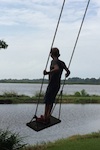 There are places in my history where I came to know myself in real ways. There is land that reminds me who made me. There are hills that sing to me of who my people are, and there’s a road where I ran until I understood the girl that God had created within this lanky frame. These are the places that made me, and when the earth is shifting at home, or when I just forget the truth, these are the places I crave.
There are places in my history where I came to know myself in real ways. There is land that reminds me who made me. There are hills that sing to me of who my people are, and there’s a road where I ran until I understood the girl that God had created within this lanky frame. These are the places that made me, and when the earth is shifting at home, or when I just forget the truth, these are the places I crave.
 The squirreled-away baguette’s crust is so hard you can smack it on the counter and it won’t break. It is like a crouton — one big, long, stick of crouton. It has not bred worms and it does not stink, but you can’t eat it either.
The squirreled-away baguette’s crust is so hard you can smack it on the counter and it won’t break. It is like a crouton — one big, long, stick of crouton. It has not bred worms and it does not stink, but you can’t eat it either.
In your real life, you like to stock up, relying on your own ingenuity and foresight. Wince as you try to break the baguette one more time. Maybe right now you’re in Paris, dining while sitting down, saving butter for the morning, learning to count to five, but probably you’re just the same person, wherever you are, same fear, same neuroses, same old tired you.
Then, all at once: a miracle.
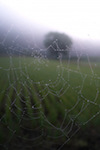 In order to reconcile myself to the difference I feel between Mr. Berry's observation of the world and mine — at my own risk, according to his prefaced warning — I listen to him as I would a prophet rising to an appointed calling, announcing judgment to all transgressors, calling us to change the way we live in order to be spared. He is a surly prophet, but better an ornery prophet than unmerciful judge. I would not want you, Mr. Berry, as my judge. You seem too convinced of my guilt before hearing my story.
In order to reconcile myself to the difference I feel between Mr. Berry's observation of the world and mine — at my own risk, according to his prefaced warning — I listen to him as I would a prophet rising to an appointed calling, announcing judgment to all transgressors, calling us to change the way we live in order to be spared. He is a surly prophet, but better an ornery prophet than unmerciful judge. I would not want you, Mr. Berry, as my judge. You seem too convinced of my guilt before hearing my story.
Dirt, Chicken, and the Reimagined Rose
Jesus spoke of a way of rightful being and living with God, people, and place. He gave it a name that the people of the time would understand — the Kingdom of God, and then He turned their notions of kings and kingdoms upside down and inside out. His talk of the Kingdom was not a once for all, clear as a bell theological declaration. It is, however, a creative means to reorient, even reestablish, what it means to be God’s kind of fully human person. That is, a person alive to a healthy relationship with God, His people, the land and all that is in it.
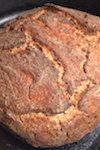 For a long time, I did not love poetry.
For a long time, I did not love poetry.
I read poetry. I memorized poetry to get me through a job that left me weary from boredom. I tried to understand poetry. But I didn't love it.
I loved words. Any words. Words in books, words in songs, words on the shampoo bottle. I loved stories — long ones, short ones, fat ones, skinny ones. I loved metaphors. I even loved select poems. But I did not love poetry.
Love Never Fails
We’re giving ourselves to these things, piece by very tiny piece. But before and amid all of that we’re giving ourselves to God and to each other. We’re relearning that we belong to each other already, that all things and people are connected. We’re creating space where we can remember who we are and whose we are — where we know we’re not alone.
In the Name of the Father
I did not know then nor do I know now the full nature of God. No one does, but we’re given glimpses through the revelation of nature, the testament of history and its saints, and especially through the ordinary people who love us and mark our days. As a child my earthly father represented whatever goodness, safety, and unconditional love there was to be found in this world. And that has everything to do with why I call myself a Christian today, and can still refer to God as Father, problematic though it may be for me as a 21st-century woman.
Keeping the Feast
It was a world — a life — that disappeared with divorce and vows gone wrong, as the garden did under the parking lot. With it went the abundant veggies and flowers, the girlfriends' nights of canning and freezing the harvest, a certain style of gathering friends and family around the walnut table.
All the more richly strange that anyone should gather — in both the old way and the new — at the walnut table nicked now with thirty years of feasting which, though it has changed styles, continues. A table hosting faith and doubt, pain and joy, betrayal and commitment.
 I find it hard to sit with people.
I find it hard to sit with people.
I wish I meant that I find it hard to sit with people in a cramped room with a broken A/C or in a bad jury trial or even in a hospital waiting room. To my mind this is more understandable. But I mean I find it hard to sit with people in general. Like at a diner for more than half an hour. Or at a party. Or at the dinner table. Or at a park. Or on a walk. My social self, though, operates pretty adroitly, and I can spend hours at a diner or a party or a dinner table and have a pretty good time — it’s just that after awhile, something under my skin starts to crawl.
 I did not choose to become a mother because I had dealt with all of my fears. We say yes to new life not because it’s logical, not because we believe we are prepared to handle the brilliance of the pain and the complexity of the relationship. We say yes because of love, which as Pascal said, “has reasons of which reason knows nothing.” Our yes means accepting mortality, feeling life and its frailty in our very bellies.
I did not choose to become a mother because I had dealt with all of my fears. We say yes to new life not because it’s logical, not because we believe we are prepared to handle the brilliance of the pain and the complexity of the relationship. We say yes because of love, which as Pascal said, “has reasons of which reason knows nothing.” Our yes means accepting mortality, feeling life and its frailty in our very bellies.

















